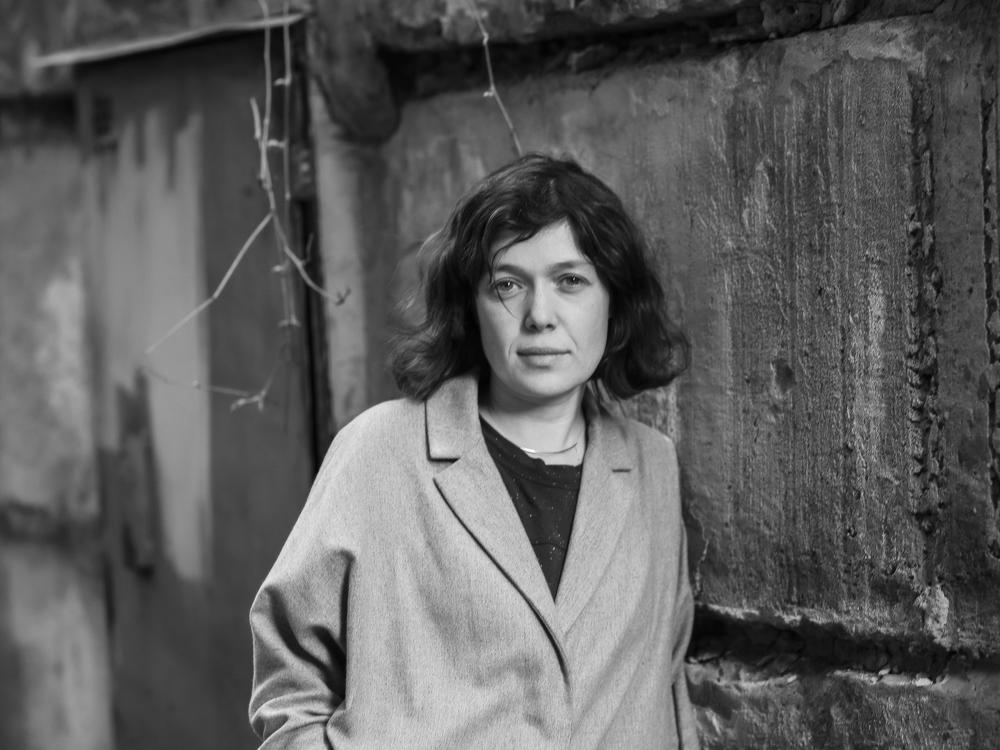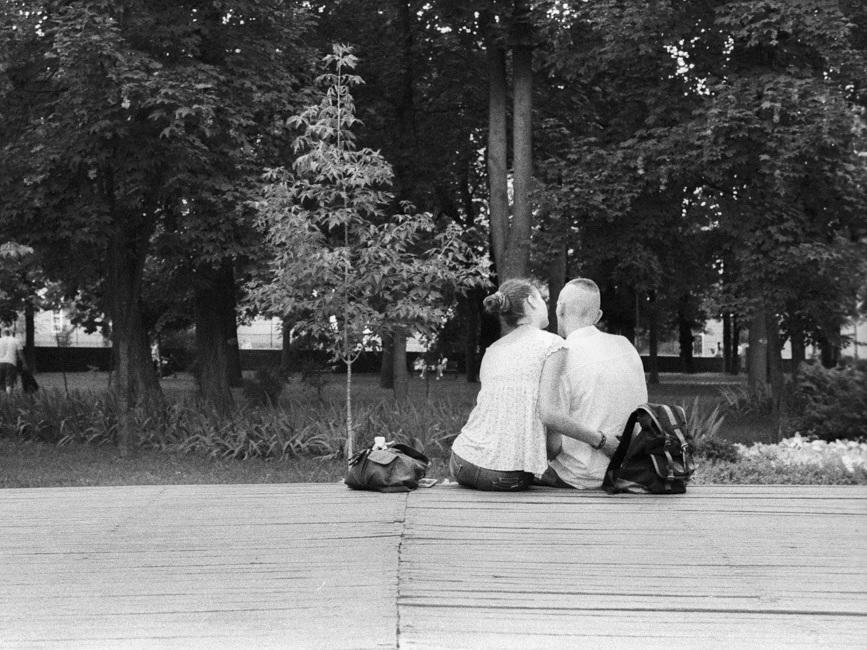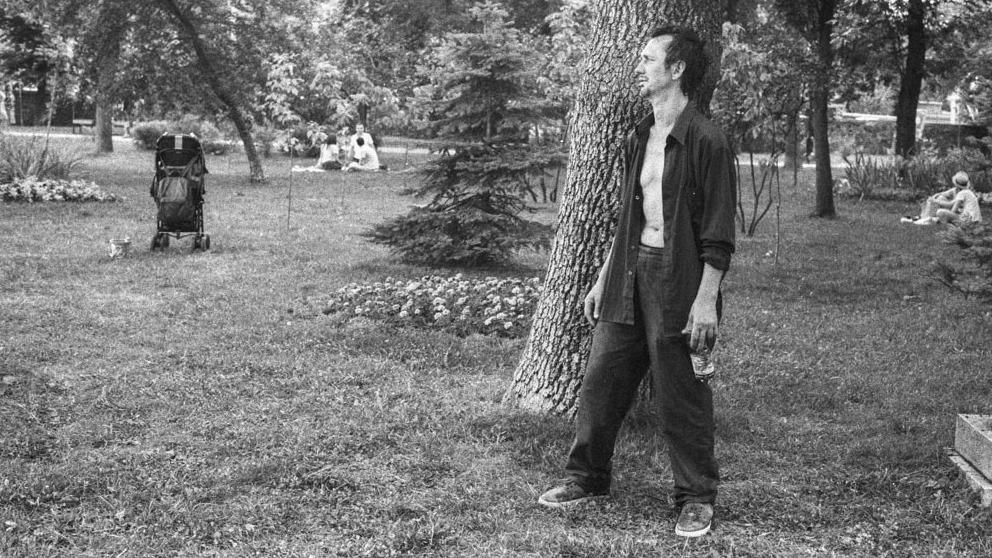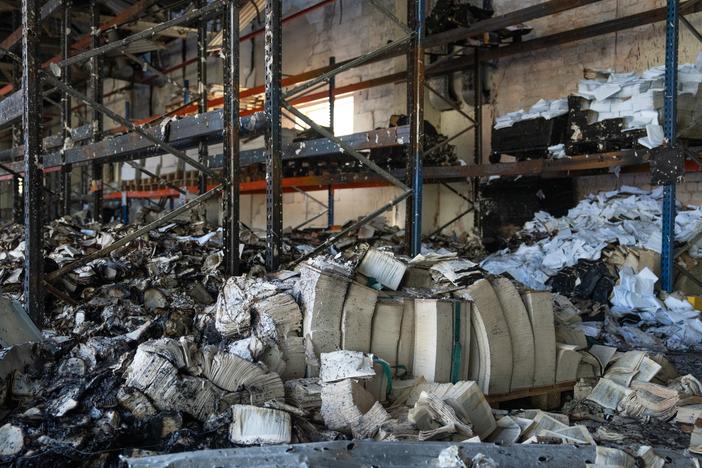Section Branding
Header Content
In Ukraine, writer-photographer Yevgenia Belorusets documents Kyiv's displaced
Primary Content
Yevgenia Belorusets hasn't been sleeping much: The photographer and writer is in Kyiv.
Her parents live there and refused to leave. She's also got other close family members whose health is preventing them from going elsewhere. So, she's hunkering down in a city being assaulted by Russian forces, trying to live as normal a life as possible.
But of course, wartime warps things for those affected by it. On the one hand, everyone she's met these past few weeks, and everything she's experienced has felt immensely important. On the other hand, she's having trouble remembering things. "The days are starting to get much longer," she told me over the phone.
The blurry vision caused by war isn't an unfamiliar topic for Belorusets. Her book Lucky Breaks was just translated into English and published last week. She wrote it in the aftermath of Russia's previous assault into Ukraine in 2014. She decided at that time to pick up her camera and head into eastern Ukraine to document what was happening, and talk to newly made refugees, who were fleeing from violence.
She turned that reporting into Lucky Breaks, a collection of short fiction, depicting women affected by war. Each story is sparse, and they bend and blend reality with folklore and absurdism to truly depict these women who are lost, confused, and are living in a not-clear vision of reality. "When I was writing that book, I didn't know that I will become one of those characters," Belorusets said.
In one story, women living in constant fear of shelling start believing rumors that it's Canada that's doing the bombing. In another, a woman finds herself unable to walk, so she sits on a park bench. Thankfully, it's International Women's Day, so someone throws her a bouquet of flowers, "as if he were throwing a bone to a dog." And in another story a florist tends to her shop, until the narrator interjects:
"What is this story I am telling you really about? Does it make any sense to continue? In fact, the story doesn't exist, the narrative doesn't continue, it breaks off. The florist disappeared. The house where she lived was destroyed. Her store was refitted into a warehouse of propaganda materials. Her regular customers left Donetsk long ago."
The book's translator, Eugene Ostashevsky, admires that the book is about civilians. Or, as he calls them, "people who don't count."
"When you decide to invade a country, you sit around saying 'well, they have this many troops and that many troops,' But you don't say 'well, they have this many civilians who are going to flee,' right?" he said in an interview. "So it's a book that makes invisible people visible."
Belorusets has spent the last couple of weeks doing the same for people affected by today's war. She's filing daily diary entries that get translated then cross-posted between the publisher Isolarii and Artforum. She writes about meeting other people who are choosing to stay, taking photographs of the city while trying to not get mistaken for a Russian spy, and trying to keep busy as the war continues.
In one entry, she writes about walking down a beautiful and historic avenue in Kyiv. "The landscape looked dreamy, and only that distant sign of fire indicated a flaw in it," she writes:
"Then I heard a sobbing male voice approaching me.
A man who seemed homeless was walking down the avenue with an old backpack. He had wrapped plastic bags around his shoes to warm his feet. In his hand, he carried a small, half-drunk vodka bottle. As he walked, he spoke very loudly into his cell phone, repeatedly asking how someone was doing. With each answer, he broke into sobs, like a child, over and over again. I understood through fragments that he was talking about an evacuation. I caught up with him and slipped him some money, which he accepted without interrupting the conversation.
Wherever I go, I see mostly polite, caring, calm faces. Grocery store employees, volunteers, soldiers, and members of the Territorial Defense. I also meet exhausted, sad people, especially doctors. But this was the first time I'd seen someone crying since the beginning of the war. At least, that's how it felt to me at that moment."
Each entry is accompanied by a photo. Belorusets said the practice of photographing her day has been helpful in fighting the fog of war. That at the end of the day she'll start to write, and look at her collection of pictures from the day, and suddenly, things will come back to her — things she'd completely forgotten. "Before I see the photograph, this moment might not exist in my memory," she said.
And if taking pictures helps remembering the un-rememberable, the writing helps believing the unbelievable. Just the other morning, after only falling asleep a few hours earlier, she felt two explosions go off near her house. Everything shook. She looked outside the window and saw that her parents' house was ok. She made sure the neighboring houses were still standing, too. After that, she went to the part of the house where the walls were sturdiest, sat on the ground, and started writing.
Copyright 2022 NPR. To see more, visit https://www.npr.org.
Bottom Content







